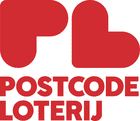September 3, 2020
Mukwege Foundation and Panzi USA statement on the security of Dr. Mukwege and on-going justice efforts
September 3, 2020
For over twenty years, our Founder and 2018 Nobel Peace Prize Laureate, Dr. Denis Mukwege, has treated thousands of survivors of sexual violence at Panzi Hospital in the Democratic Republic of Congo (DRC). He has witnessed firsthand the consequences of countless rapes committed with extreme brutality and used as a weapon of war. As a result, he has become a tireless advocate for its eradication and for promoting peace and justice.
Over the years and because of the nature of his work, Dr. Mukwege has been under regular threat. In 2012, he survived an assassination attempt. And now, for several weeks, he has been the target of an intimidation campaign, both on social media and offline, which includes death threats against him and his family.
Until this May, Dr. Mukwege enjoyed protection from the UN peacekeeping force in DRC, MONUSCO. Such life-saving protection was revoked and we are now greatly concerned about Dr. Mukwege‘s life and safety.
The threats made are not only against him and his family—they are also threats to the search for justice and the possibilities for reconciliation and lasting peace in a country that has already suffered from widespread impunity for far too long.
The threats are linked with his advocacy towards transitional justice and his call for advocating the implementation of the recommendations of the Mapping Report, published 10 years ago by the Office of the UN High Commissioner for Human Rights (OHCHR).
In 2005, three mass graves were uncovered in the eastern region of DRC after a decade of conflict. These unfathomable discoveries prompted OHCHR to conduct a mapping exercise to document the most serious violations of human rights and international humanitarian law that were committed between 1993 and 2003. The result of these efforts was the 550-page report detailing 617 violent incidents, including mass rapes. These incidents may amount to war crimes, crimes against humanity, and crimes that could constitute genocide. The report recommended a variety of transitional justice options, including the establishment of specialized mixed chambers to prosecute these most heinous crimes.
The report was released on October 1, 2010— yet none of its recommendations have been implemented. The Mapping Report has languished in the drawers of diplomacy for the past ten years, repeated calls for the implementation of its findings have gone ignored, and those involved in the listed crimes have never been held accountable for the atrocities committed.
Last week, Michelle Bachelet, the UN High Commissioner for Human Rights, released a statement calling for a thorough investigation into these threats and called for “concrete steps to establish transitional justice processes that grant thousands of victims of successive conflicts their right to justice, truth, and reparations.”
Members of various national parliaments and the European Parliament have also echoed these concerns, with the Subcommittee on Human Rights recently underscoring the need to implement, and update the recommendations of the Mapping Report.
Congolese President Felix Tshisekedi has also instructed his government to prioritize transitional justice efforts and vowed to protect Dr. Mukwege.
We are encouraged by the outpouring of support that Dr. Mukwege has received from the Congolese and international community following the most recent threats to his safety, including at the highest level of leadership.
But Dr. Mukwege will only be safe when he is no longer the sole voice repeatedly calling for justice and peace.
We call for the effective protection of Dr. Mukwege with involvement by the UN, and for the implementation of the mechanisms of transitional justice for the atrocities that are still being committed in the DRC, to this day.
















